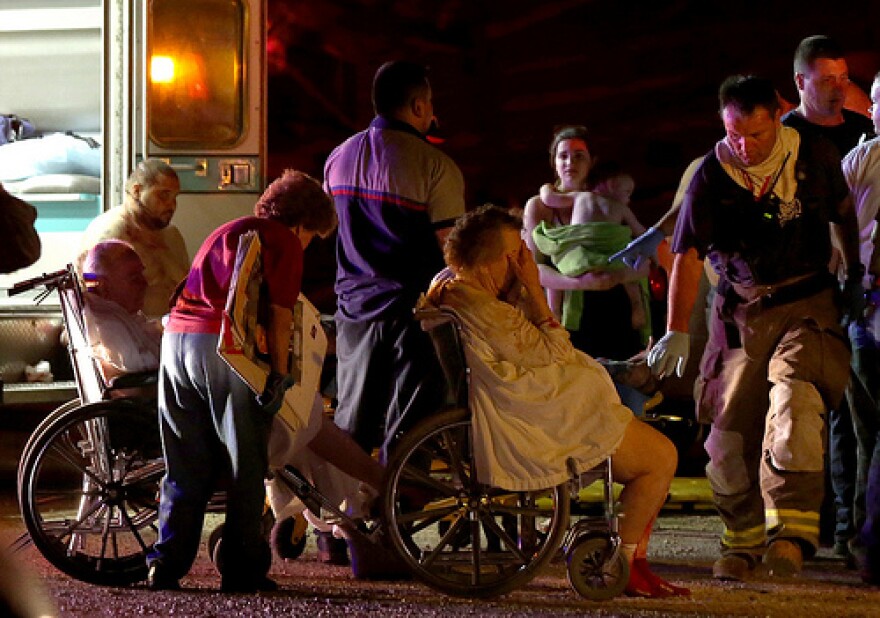After a natural or manmade disaster, there are emergency responders to help with rescues, injuries and property damage. But a new study by psychiatrists at UT Southwestern Medical Center says disaster response should include mental health.
The study was led by Dr. Carol North, who has researched disasters for at least 25 years. She’s a psychiatry professor at UT Southwestern and director of the trauma and disaster program at VA North Texas Health Care System. In this installment of KERA’s series Vital Signs, Dr. North talks with Sam Baker about the kind of psychiatric disorders that can follow a disaster.
Three Things You Need to Know About PTSD
- Dr. North says post-traumatic stress disorder (PTSD) is the most common type of psychiatric disorder experienced after a major traumatic event. But she says it usually can’t be diagnosed for at least a month. “It takes time for the dust to settle and to see who has symptoms and who doesn’t.”
- Women are twice as likely to have PTSD as men. No one knows exactly why. “But women develop more anxiety and depressive disorders in the general population,” North says, “and PTSD has a lot of symptoms of similar types as part of it.”
- Most people (9 of 10) will be exposed at some point in their lives to an event that’s a threat to life or limb. She says certain types of events have very high rates of PTSD such as being a prisoner of war, being tortured, personal assaults, rapes. “I studied survivors of the Oklahoma City bombing and people who were on the upper floors of the World Trade Center on 9-11,” she says, “and about a third of those groups developed PTSD.”
What is PTSD?
The Mayo Clinic defines itas a mental health condition that’s triggered by a terrifying event. Symptoms include flashbacks, nightmares and severe anxiety, as well as uncontrollable thoughts about the event.
Symptoms
Post-traumatic stress disorder symptoms are generally grouped into three types: intrusive memories, avoidance and numbing, and increased anxiety or emotional arousal (hyperarousal).
Intrusive memories produce:
- Flashbacks, or reliving the traumatic event for minutes or even days at a time
- Upsetting dreams about the traumatic event
Signs of avoidance and emotional numbing include:
- Trying to avoid thinking or talking about the traumatic event
- Feeling emotionally numb
- Avoiding activities you once enjoyed
- Hopelessness about the future
- Memory problems
- Trouble concentrating
- Difficulty maintaining close relationships
Anxiety and increased emotional arousal may show up through:
- Irritability or anger
- Overwhelming guilt or shame
- Self-destructive behavior, such as drinking too much
- Trouble sleeping
- Being easily startled or frightened
- Hearing or seeing things that aren’t there
Causes
Doctors aren’t sure why some people get PTSD. It’s probably caused by a complex mix of:
- Your inherited mental health risks, such as an increased risk of anxiety and depression
- Your life experiences, including the amount and severity of trauma you’ve gone through since early childhood
- The inherited aspects of your personality — often called your temperament
- The way your brain regulates the chemicals and hormones your body releases in response to stress
Risk factors
People of all ages can have post-traumatic stress disorder. However, some factors may make you more likely to develop it after a traumatic event:
- Being female
- Experiencing intense or long-lasting trauma
- Having experienced other trauma earlier in life
- Having other mental health problems, such as anxiety or depression
- Lacking a good support system of family and friends
- Having first-degree relatives with mental health problems, including PTSD
- Having first-degree relatives with depression
- Having been abused or neglected as a child






